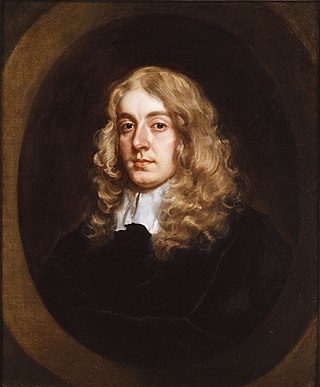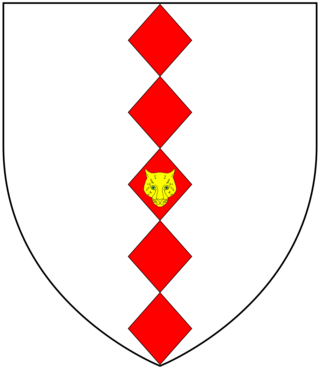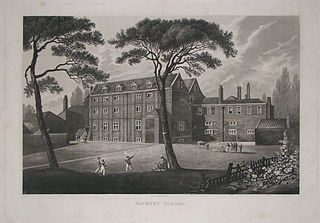
Earl of Romney is a title that has been created twice.
Sir Richard Willis, 1st Baronet was a Royalist officer during the English Civil War, and a double agent working for the Parliamentarians during the Interregnum.

Sir Samuel Morland, 1st Baronet, or Moreland, was an English academic, diplomat, spy, inventor and mathematician of the 17th century, a polymath credited with early developments in relation to computing, hydraulics and steam power.
This is a list of people who have served as Custos Rotulorum of Denbighshire.

There have been three baronetcies created for persons with the surname Burdett, two in the Baronetage of England and one in the Baronetage of Ireland. As of 2008, two of the creations are extant while one is dormant.

Sir Robert Burdett, 3rd Baronet DL was an English baronet and Tory politician.
There have been three baronetcies created for persons with the surname Bernard, one in the Baronetage of England, one in the Baronetage of Great Britain and one in the Baronetage of the United Kingdom. Two of the creations are extinct and one is extant.
Sir Scrope Bernard-Morland, 4th Baronet was a British politician and baronet.
The following is a list of events from the year 1629 in Ireland.

The Smith, later Bromley, later Pauncefote-Bromley, later Bromley-Wilson, later Bromley Baronetcy, of East Stoke in the County of Nottingham, is a title in the Baronetage of Great Britain. It was created on 31 October 1757 for the banker George Smith, High Sheriff of Nottinghamshire from 1757 to 1759. He was the eldest son of Abel Smith I (1686–1756) of Nottingham, the 2nd son of Thomas Smith I (1631–1699), the founder of Smith's Bank in Nottingham. His younger brothers included: Abel Smith II (1717–1788) and John Smith, ancestor of Julian Pauncefote, 1st Baron Pauncefote.

Sir Robert Burdett, 4th Baronet was a British politician and member of the English gentry.

The Baronetcy of Dukinfield of Dukinfield, Cheshire was created in the Baronetage of England on 16 June 1665 for Robert Dukinfield, son of Colonel Robert Dukinfield.

Sir Thomas Gooch, 2nd Baronet (1674–1754) was an English bishop.

Sir Hector Maclean, 5th Baronet of Morvern was the 21st Clan Chief of Clan Maclean from 1716 to 1750. He was raised to the Jacobite Peerage of Scotland as Lord Maclean on 17 December 1716, a title to pass on his male heirs.

The Hele Baronetcy, of Fleet in the County of Devon, was a title in the Baronetage of England. It was created on 28 May 1627 for Thomas Hele, Member of Parliament for Plympton Erle and Okehampton. The title became extinct on the death of the third Baronet in 1677.
The Moyer Baronetcy, of Petsey Hall in the County of Essex, was a title in the Baronetage of England. It was created on 25 March 1701 for Samuel Moyer, a London merchant. He was the son of Samuel Moyer, also a merchant, and High Sheriff of Essex in 1698. The title became extinct on Moyer's death in 1716.

Newcome's School was a fashionable boys' school in Hackney, then to the east of London, founded in the early 18th century. A number of prominent Whig families sent their sons there. The school closed in 1815, and the buildings were gutted in 1820. In 1825 the London Orphan Asylum opened on the site. Today the Clapton Girls' Academy is located here.
Sir Francis Compton was an English soldier and politician. He sat in the Cavalier Parliament of the House of Commons between 1664 and 1679.











